Cycling / Mobility / Public Spaces
Velo-City 2022 Summary
Each year the European Cyclist Federation organizes the Velo-City Conference –a coming together of people from all facets of the cycling industry to discuss the work being done to improve conditions and make cities wonderful places to hop on a cycle. This year’s event was held in Ljubljana, Slovenia, a city that has made several bold decisions in recent years to create more human scale spaces where walking, cycling and public transportation are more enjoyable.

Credit: Dutch Cycling Embassy
An ongoing theme throughout the conference was the rise in the action of moving away from “streets for traffic” and towards “streets for people” since COVID-19. It was exciting to see the progress cities are making like Paris, winning the Cycling Improvement Award for their enormous growth in cycling journeys over the past two years. Velo-City was also an opportunity for cities to share how they are addressing the issue of reallocating space in their cities and making space for cycling. Johan Diepens, Mobycon CEO and founder, reinforced the idea of reallocating space for different types of road users based on their kinetic energy, during his presentation on the main stage on Thursday.

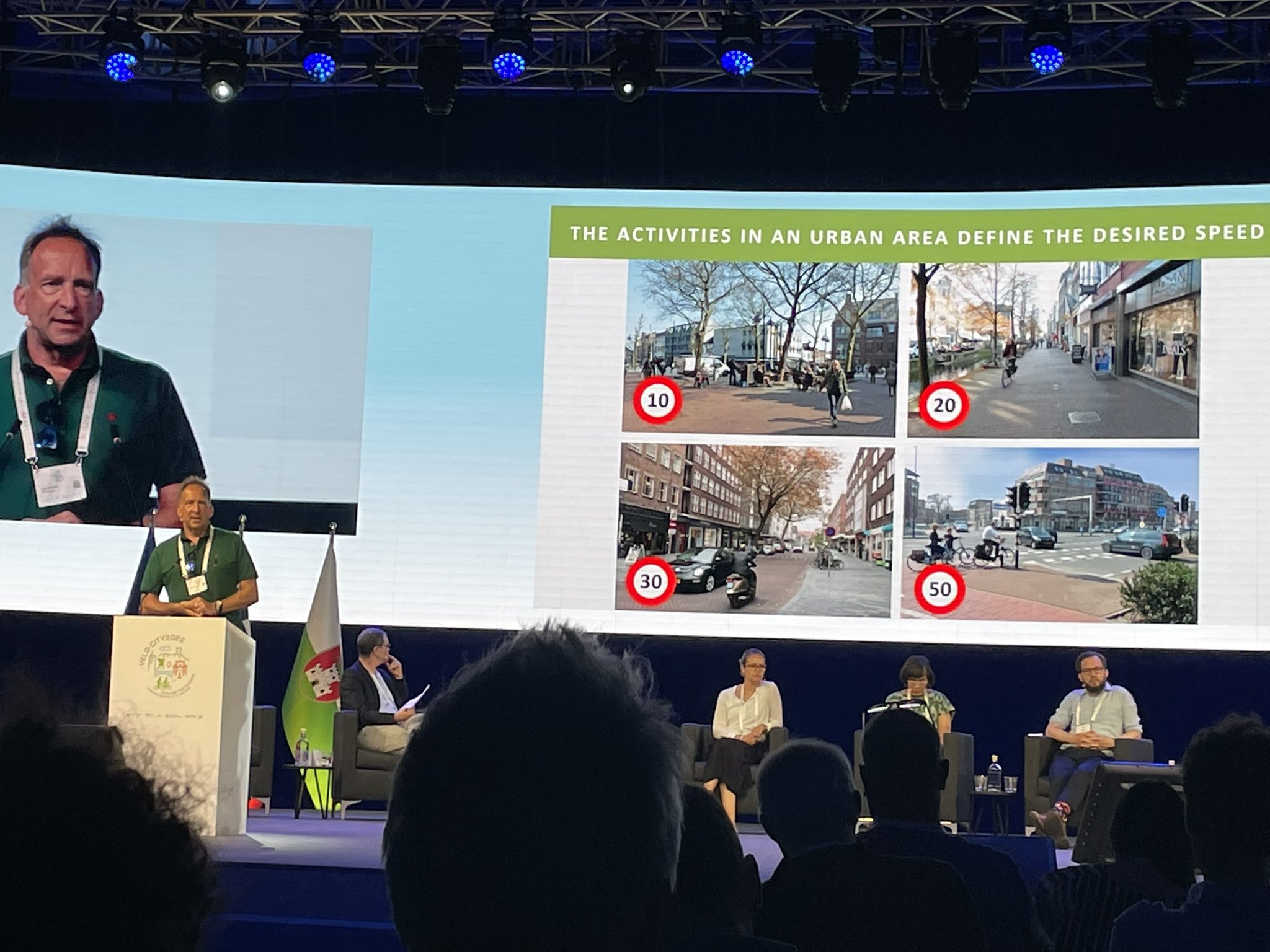
The theme of #cyclingthechange Velo-City 2022 made space to highlight a number of important ideas that maybe enjoyed less spotlight in past years, and set some exciting trends for the years to come. Angela van der Kloof and Melissa Bruntlett shared some short insights of their experiences at one of Europe’s largest cycling-focused conferences.
Angela’s reflections:
On my way home from Velo-city 2022 Ljubljana I felt grateful for the opportunity to participate in the event and represent Mobycon together with Johan Diepens, Melissa Bruntlett and Otto Cazemier. It was great to be able to catch up with friends, meet new people, and connect for the first time in person with people I had previously met online. I had the opportunity to share our research findings on bicycle ownership of youth in Amsterdam, commissioned by City of Amsterdam, support the Women In Cycling panel together with Arlette van Gilst, and hear from others what they’re working on and how. One of the highlights was riding our bikes together, conference participants alongside the citizens of Ljubljana – young and old.
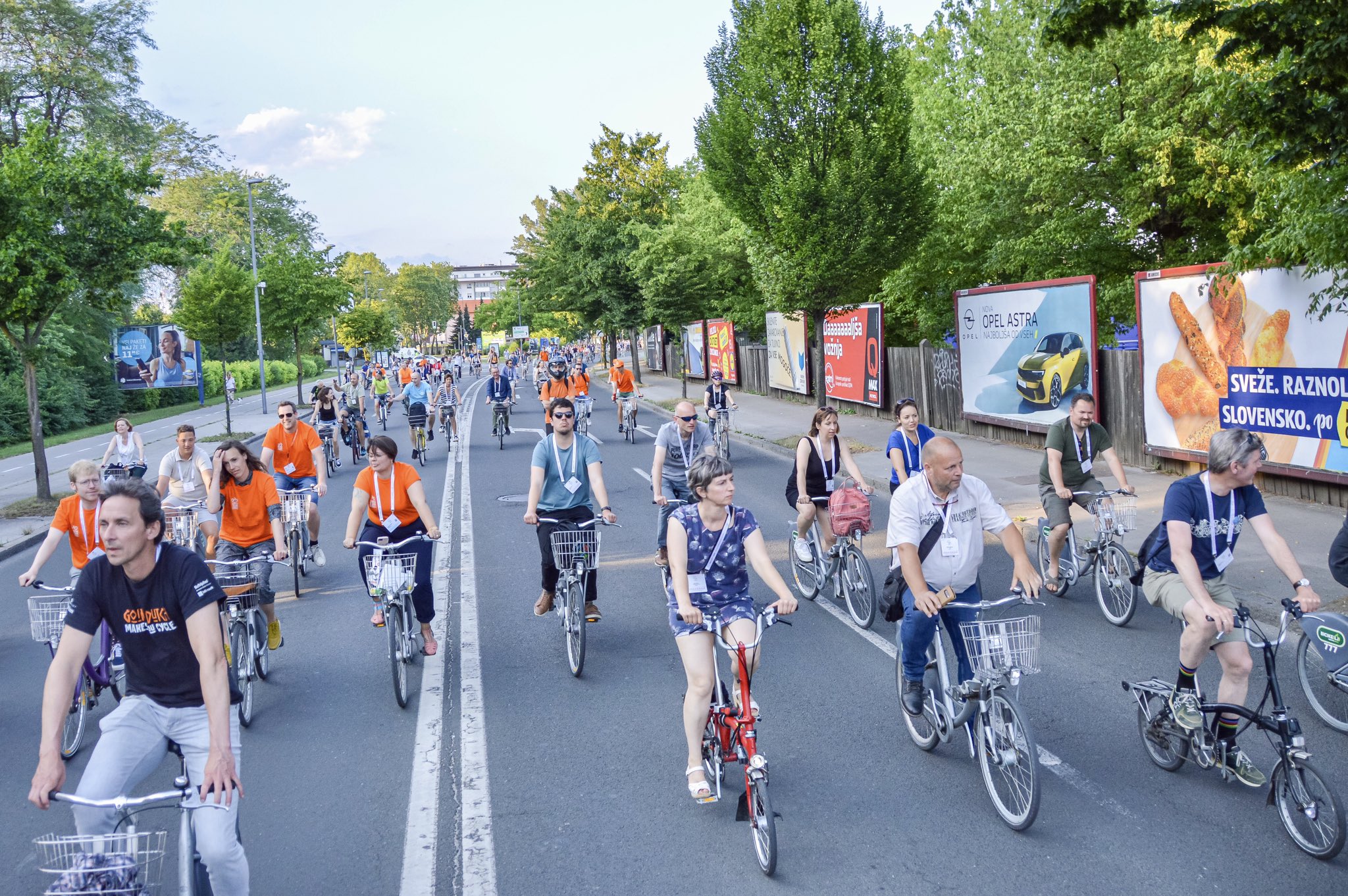
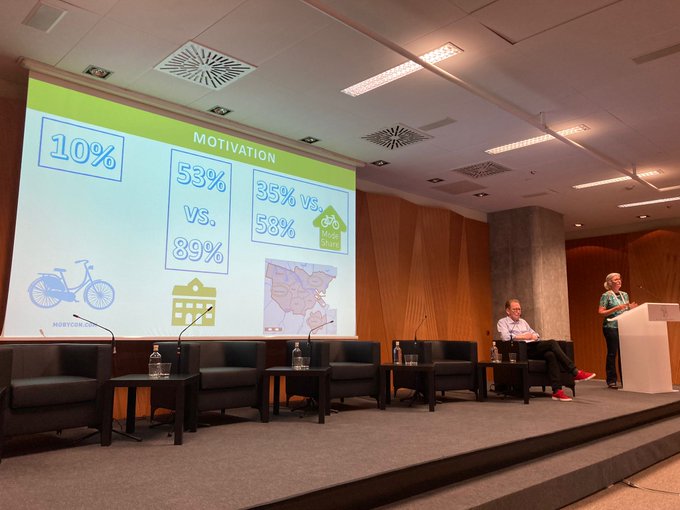
The first positive take away for me was the strong presence of younger generations in the overall participation rates as well as (to some extent) on the stage.
The second positive take away was that Velo-city proved that there are many women in the field of cycling that are more than capable of presenting, sitting in panels, moderating, representing companies and organizations in the exhibition booths as well as speaking up in sessions to ask questions. The session ‘Working towards more gender equality’ took place in a room packed with women AND men.
The third positive takeaway was that Ljubljana is a beautiful city with people young and old on all sorts of bicycles. A city that shows that car dominance can be countered. A place where people enjoy green spaces at all times of the day.
Lastly, I loved that the topic of cycling tourism was prominent on the agenda. There are many opportunities for everyone to explore their tourism habits – one of the most polluting industries in the world. There are alternative paths and cycling offers a way out of overconsumption in tourism.
Melissa’s reflections: Seeing more space for equity, inclusion, and accessibility
The topics of inclusion, equity, and accessibility are becoming an increasingly important part of every conversation around mobility and cities happening at the moment. So it was great to see so many sessions at Velo-City Ljubljana that were dedicated to bringing ideas and work focused on these topics centre stage. Sessions titles like Working towards more gender equity, Cycling out of transport poverty, Women in Cycling: Changing the game!, Overcoming barriers: Ableism & active mobility and Health benefits of cycling show that a focus on the people who benefit from infrastructure projects is just as important to share in order to inspire change as the physical changes to public spaces.
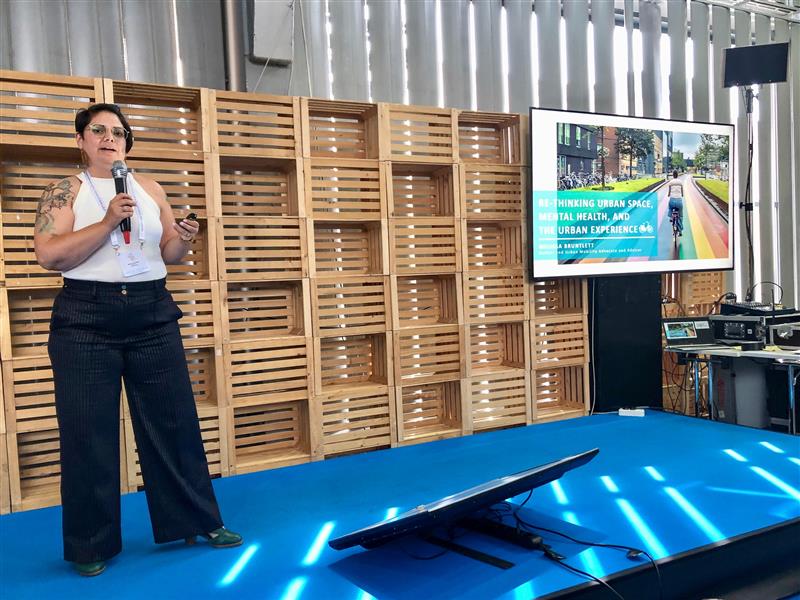
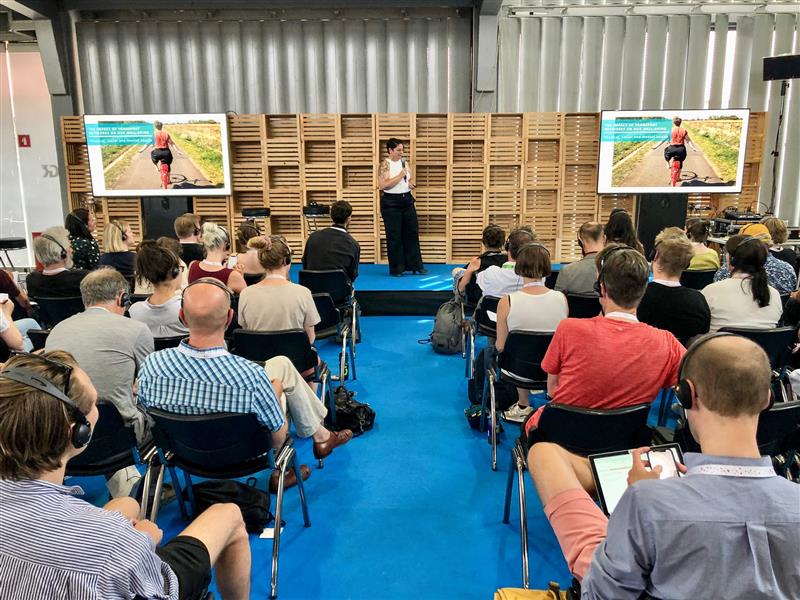
What was particularly exciting, beyond more sessions focused on these issues, was during one of the aforementioned sessions when a Velo-City conference organizer asked how they can make sure that future conferences continue to facilitate a more inclusive conference. It’s not often that that sort of question is presented in a panel session, and attendees and panelists alike openly shared how Velo-City can become a space for all voices in this mobility space. Coming as no surprise, there was a resounding recommendation that diversity is key: Diversity in ages, races and most of all, abilities.
Every day we learn how cycling is a tool of emancipation for people, and how cycling infrastructure provides space not just for two-wheelers, but also three- and four-wheeled cycles, as well as mobility devices for people with physical disabilities. In the session Overcoming Barriers, we were reminded that for individuals on the autism spectrum or with cognitive disabilities, cycling can be a safe form of mobility when the streets are designed to allow them the ability to do so. For conferences like Velo-City, making space for these individuals to share their experiences not only shines a light on how they move through the world, but also presents opportunities for them to be increasingly represented in the mobility field. Knowing this makes me hopeful that cycling can and will become and even more inclusive, accessible, and equitable in the years to come!

